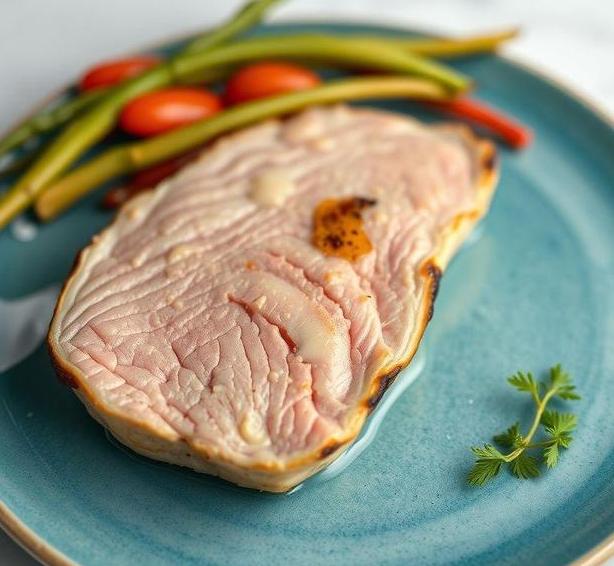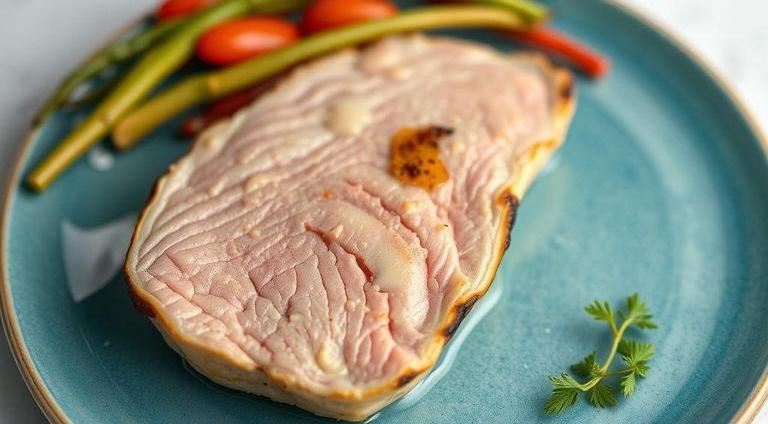Duck breast is a flavorful and succulent cut of meat that has been cherished in cuisines across the world, from French to Asian cooking. Known for its rich taste and tender texture, duck breast is often a delicacy, whether served roasted, pan-seared, or even grilled. However, like any other perishable food, it’s important to understand the nuances of its freshness and shelf life to make sure you’re not eating something that’s gone bad.
You wouldn’t want to go from enjoying a mouthwatering duck dish to dealing with the aftermath of foodborne illnesses. So, let’s dive into all you need to know about the shelf life, spoilage signs, proper storage methods, and how to ensure your duck breast stays as fresh as possible.
Can Duck Breast Go Bad?
Absolutely. Duck breast, like any fresh meat, has a limited shelf life, especially when not stored properly. Whether you’ve purchased it fresh or frozen, it’s crucial to pay attention to its condition to prevent any health risks. Duck meat contains a good amount of fat, which can spoil if not handled properly, even in a short period of time. The fat in duck breast, unlike some other meats, can quickly develop a rancid smell if exposed to air or stored improperly.
If you leave your duck breast out too long at room temperature or fail to keep it at the right temperature, bacteria can multiply rapidly, leading to spoilage and making the meat unsafe to eat.
But how long does this process take? That’s where understanding the shelf life and proper storage methods becomes key.
Shelf Life For Duck Breast

The shelf life of duck breast can vary depending on several factors, such as whether it’s fresh or frozen, and how it’s stored. Here’s a breakdown to help you gauge how long your duck breast is good for:
Common Signs Of Spoilage
Knowing when duck breast has gone bad is crucial for both food safety and taste. Here are the most common signs of spoilage to look out for:
-
Smell
- Fresh duck breast has a mild, almost sweet aroma. If it has a sour, off, or rancid odor, this is a sign that the fat in the duck has gone bad and the meat is no longer safe to eat.
-
Color
- Fresh duck breast should have a rich, dark red color. If the meat starts turning brown or gray, this is a sign of spoilage. While slight color changes might occur due to exposure to air (oxidation), drastic discoloration is a clear red flag.
-
Texture
- The texture of duck breast should be firm, slightly springy to the touch. If it feels slimy or sticky, it’s a sign that the meat has started to break down, and bacteria are likely at work.
-
Packaging
- If the vacuum-sealed package has been punctured or damaged, bacteria could have entered, which increases the chances of spoilage. If it’s swollen or leaking liquid, the duck breast should be discarded immediately.
-
Taste
- If you’re unsure whether the duck breast has gone bad after cooking, take a small bite. Spoiled duck will have an unpleasant, off-putting taste, and you should discard it immediately if you detect this.
How To Store Duck Breast?

Proper storage is the key to prolonging the freshness of your duck breast, whether it’s fresh or cooked. Here’s what you need to do:
-
Refrigerating Fresh Duck Breast
- Keep it in the coldest part of your fridge (usually at the back).
- Store it in its original packaging if unopened. If you’ve already opened it, wrap it tightly in plastic wrap, wax paper, or place it in an airtight container to avoid exposure to air.
- You can also store the duck in a sealed plastic bag or vacuum-sealed bag for added protection from air.
-
Freezing Duck Breast
- If you don’t plan to use the duck breast within a couple of days, freezing is your best option.
- Wrap it tightly in plastic wrap, then place it inside a freezer bag or vacuum-sealed bag. Try to remove as much air as possible to prevent freezer burn.
- Label the bag with the date so you can easily track how long it’s been stored.
-
Storing Cooked Duck Breast
- Cooked duck breast should be stored in an airtight container in the fridge.
- It’s best to consume it within 3-4 days.
- If you want to extend the shelf life, freeze the cooked duck breast and eat it within 2-3 months.
Expert Tips
Here are a few expert tips for keeping your duck breast in peak condition:
- Use a thermometer: When cooking duck breast, make sure you’re cooking it to the right internal temperature (165°F or 74°C for fully cooked). This reduces the risk of bacterial growth.
- Don’t leave it out too long: Duck breast should never be left out at room temperature for more than 2 hours. If it’s hot outside, or you’re in a particularly warm environment, reduce that time to 1 hour.
- Vacuum sealing: If you cook duck in bulk, vacuum sealing portions before freezing will keep the meat fresher for longer and maintain its texture.
- Avoid cross-contamination: When handling duck breast, always wash your hands, utensils, and surfaces thoroughly to prevent bacteria from spreading to other foods.
- Marinating: If you plan to marinate the duck, don’t leave it in the marinade for too long-typically no more than 24 hours. Any longer and the meat can break down, losing its texture.
FAQs
Can Duck Breast Go Bad If Left Out At Room Temperature?
Yes, duck breast can go bad if left out at room temperature for too long. Perishable foods like duck breast should not be left at room temperature for more than 2 hours to avoid bacterial growth and foodborne illness.
How Long Can Duck Breast Last In The Fridge?
Duck breast can last in the fridge for up to 2-3 days when stored properly in an airtight container or wrapped tightly in plastic wrap. If it is cooked, it can last for 3-4 days.
How Can You Tell If Duck Breast Has Gone Bad?
Signs that duck breast has gone bad include an off or sour smell, a slimy or sticky texture, and a color change (such as turning gray or brown). If the meat feels unusually soft or mushy, it may also be spoiled.
Can You Freeze Duck Breast To Extend Its Shelf Life?
Yes, you can freeze duck breast to extend its shelf life. When frozen, it can last for up to 6 months. Ensure it is wrapped tightly in plastic wrap or a vacuum-sealed bag to prevent freezer burn.
How Long Can Duck Breast Be Stored In The Freezer?
Duck breast can be stored in the freezer for up to 6 months if it is properly wrapped and sealed. After this period, the quality may degrade, but it will still be safe to eat if it has been stored at a consistent freezing temperature.
Can Duck Breast Go Bad After Being Cooked?
Yes, cooked duck breast can go bad. If it is not stored properly in the fridge or is left out for too long, it can spoil. It should be eaten within 3-4 days when refrigerated.
What Is The Best Way To Store Raw Duck Breast?
The best way to store raw duck breast is to keep it in its original packaging or wrap it tightly in plastic wrap or foil. It should be placed in the coldest part of the refrigerator and used within 2-3 days.
Can Duck Breast Go Bad If It Has Been Vacuum Sealed?
Vacuum-sealed duck breast can last longer than regular packaging, but it can still go bad if it’s not stored properly. If refrigerated, vacuum-sealed duck breast can last for up to 1-2 weeks, and if frozen, it can last for 6 months.
Is It Safe To Eat Duck Breast That Has A Slight Off Smell?
It is not recommended to eat duck breast with a slight off smell. While it may not always be obvious, an off odor is often an indication of spoilage. It’s better to discard it to avoid any risk of foodborne illness.
Can Duck Breast Spoil While Frozen?
Although freezing prevents the growth of bacteria, duck breast can still spoil in the freezer due to freezer burn or exposure to air. Proper wrapping and sealing are essential to maintain its quality while frozen.